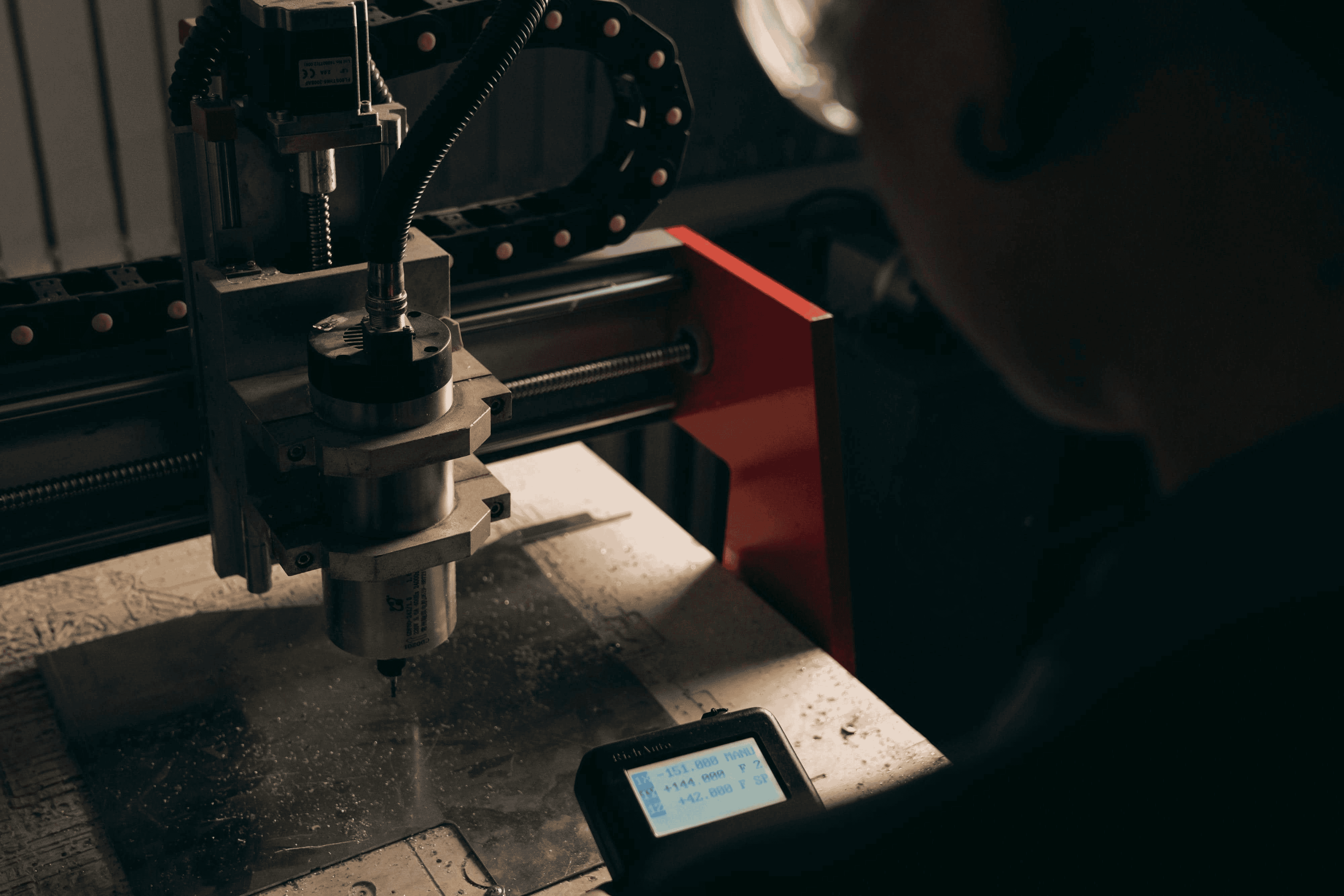Custom Fabrication

Metal machining services transform raw stock into precise parts through controlled material removal. Core processes include milling for prismatic geometry, turning for rotational features, drilling and tapping for holes and threads, and grinding for ultra fine finishes. Electric discharge machining handles hard alloys and intricate internal forms. Across these methods, the fundamentals are tolerance, surface integrity, repeatability, and consistent measurement.
Tolerances often range from 0.005 in for general features to 0.0005 in for critical fits when the machine, tooling, and inspection plan are dialed. Surface finish is specified in Ra and tied to function, such as sealing faces, bearing fits, or cosmetic panels. Material choice shapes strategy. Aluminum machines quickly, stainless resists work hardening with sharp tooling and coolant, titanium demands rigid setups, and copper alloys require controlled speeds to avoid smearing. The right cutter geometry, coating, coolant, and toolpath all feed the quality outcome.
Workholding is a quiet hero. Rigid fixturing minimizes deflection and vibration so the tool cuts, not chatters. Soft jaws and dedicated fixtures match part contours to distribute clamping forces. Zero point systems shorten setup time for batches. Metrology closes the loop. In process probing, handheld gauges, and CMM verification validate parts and catch drift before it becomes scrap.
5 axis cnc machining services producing complex metal parts with tight tolerances in Fayetteville Arkansas
Traditional three axis milling cuts effectively but may require multiple setups for different faces, which compounds error. With 5 axis cnc machining services, the tool or the part can tilt and rotate to access complex surfaces in one sequence. This reduces fixture counts, improves feature to feature alignment, and enhances surface continuity on sculpted forms. There are two main modes. Three plus two positions the part with two rotary axes then machines with three linear axes. Full simultaneous five axis moves all axes together to sweep complex curves and maintain constant tool engagement.
The benefits stack up. Shorter tools with better reach reduce deflection and improve finish. Cycle times drop as fewer setups are needed. Blended surfaces show fewer witness lines because the tool stays normal to the surface. For parts like impellers, manifolds, ergonomic housings, and medical fixtures, a 5 axis cnc service can be the difference between a patchwork of operations and a clean single process. When specs call for true position and tight GD and T on multiple faces, five axis alignment helps the metrology story too.
Toolpath strategy matters. Scallop height, stepovers, cutter contact, and feed optimization keep finishes predictable. Machine dynamics, rotary accuracy, and thermal control also push results higher. Good programming anticipates tool engagement changes as angles shift and uses dynamic toolpaths to maintain chip load. Inspection plans should mirror the machining strategy, prioritizing datums that reflect the primary clamping orientation.
Choosing a partner for metal machining services involves more than a machine list. Look for clear communication on manufacturability, probing and inspection capability, and examples of similar complexity. Ask about programming tools, fixture design, and how they manage repeat work with setup documentation. For five axis, ask whether the work is three plus two or full simultaneous, and request sample finishes and CMM reports that match your part’s risk points.
Pricing reflects setup time, cycle time, material, tooling, and finish. Efficient quoting starts with a STEP or native CAD model, a 2D drawing for tolerances and threads, material and finish callouts, and the target quantity. Consider design for manufacturing to trim cost without sacrificing function. Consolidating features for single setup machining, avoiding ultra deep pockets, and standardizing thread sizes all help. For recurring work, invest in dedicated fixtures to stabilize quality and cycle times.
We build for the real world, so it is important to connect engineering decisions to where a part lives and how it is installed. If a bracket sees vibration or salt spray, that drives material and finish choice. If access for tools is tight inside a vehicle, that affects the fastener strategy and thread callouts. This end use focus keeps the machining plan honest and the final assembly smooth.
For custom components tied to vehicle builds, you can lean on our fabrication team to move from concept to hard parts. Explore custom fabrication for engineered mounts, racks, panels, and brackets that require precision machining touches. If you want scope details, materials, and finishing options, see our fabrication services. New to our process or evaluating shops, review why choose OZK Customs to understand our approach.
Have a CAD file or even a napkin sketch. We will translate it into a manufacturable plan, coordinate five axis work where needed, and deliver parts that assemble cleanly in your van or overland rig. Based in Fayetteville Arkansas, our team coordinates DFM feedback, material sourcing, finishing, and inspection so your components show up ready to install.
We're happy to talk specs, fitment, or just bounce ideas around.
Have a bracket, mount, or precision component that needs machining for your van or overland build? OZK Customs in Fayetteville Arkansas can engineer, fabricate, and coordinate precision machining through trusted partners to deliver road ready parts. Share your CAD or idea and we will scope, quote, and schedule your project.
ADDRESS:
6159 E Huntsville Rd, Fayetteville, AR 72701
PHONE:
(479) 326-9200
EMAIL:
info@ozkvans.com